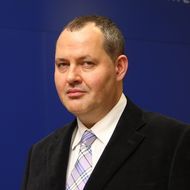- A
- A
- A
- ABC
- ABC
- ABC
- А
- А
- А
- А
- А
- HSE University
- Faculties
- Faculty of Economic Sciences
- Events
- FES International Research Seminar Series with Kalina Manova, University College London, UK
-
Departments
- Departments
-
Institutes and Centres
-
- Institute of Economics and Utility Regulation
- Institute for Industrial and Market Studies
- Centre for Labour Market Studies
- International Centre of Decision Choice and Analysis
- Centre of Development Institute
- Centre for Financial Research & Data Analytics
- Economic Statistics Centre of Excellence
- Anti-Corruption Centre
-
-
Laboratories
-
- International Laboratory for Macroeconomic Analysis
- International Laboratory of Stochastic Analysis and its Applications
- International Laboratory for Experimental and Behavioural Economics
- Corporate Finance Center
- Laboratory for Banking Studies
- Laboratory for Labour Market Studies
- Laboratory for Sport Studies
- Laboratory for Wealth Measurement
- Project Laboratory for Development of Intellectual Competitions in Economics
- Laboratory for Spatial Econometric Modeling of Socio-Economic Processes in Russia
-
- Department of Financial Market Infrastructure
- ICEF
-
Educational Programmes
- Bachelor's Programmes
-
Master's Programmes
-
- Economics and Economic Policy
- Agrarian Economics
- Stochastic Modeling in Economics and Finance (Previously, Master's in Statistical Modelling and Actuarial Science)
- Statistical Analysis in Economics
- Economic Analysis (Online)
- Strategic Corporate Finance
- Financial Markets and Institutions
- Corporate Finance
- Financial Engineering
- Master of Business Analytics (Online)
- Investments in Financial Markets (Online)
-
- Doctoral Programmes
-
Faculty
- About the Faculty
- Research
- FES International Research Seminar
- Admission
- Education
- International Cooperation
- Partnership
- Publications
- Student Research
- Alumni
- HSE MOOCs in Economics and Finance
- FAQ
109028, Moscow,
11 Pokrovsky Boulevard,
Room Т-614
Phone: (495) 628-83-68
email: fes@hse.ru
Founded in 1992, the HSE Faculty of Economics is the university’s oldest faculty. In the years since it was founded, it has gained a reputation as Russia’s leader in terms of higher economic education.
A fundamental education in modern economic theory and mathematics is combined with the study of applied disciplines, such as taxation, budget policies and processes, financial management and other related fields.
Dranev Y., Miriakov M., Ochirova E. et al.
Journal of Corporate Finance Research. 2024. Vol. 18. No. 1. P. 5-19.
In press
In bk.: Oxford Research Encyclopedia of Economics and Finance. Oxford University Press.
Dagaev D., Paklina S., Parshakov P.
Social Science Research Network. Social Science Research Network. SSRN, 2024

FES International Research Seminar Series with Kalina Manova, University College London, UK
Our next speaker in the FES International Seminar Series this academic year is Kalina Manova who is an Associate Professor in Department of Economics (University College London).
She is specializing in international trade and investment.
Kalina serves on the Council of the European Economic Association and on the editorial boards of Review of Economic Studies and Journal of International Economics. She is Research Fellow at the Centre for Economic Policy Research, Associate at the LSE Centre for Economic Performance, Research Affiliate at the International Growth Centre, and Affiliate at CESifo Institute.
Speaker: Kalina Manova (University College London).
Title: Productivity, (Mis)allocation and Trade
Abstract: We examine the impact of international trade on aggregate welfare and productivity. We show theoretically and numerically that bilateral and unilateral export liberalizations increase aggregate welfare and productivity, while unilateral import liberalization can either raise or reduce them. However, all three trade reforms have ambiguous e§ects in the presence of resource misallocation across heterogeneous Örms. Using unique new data on 14 European countries and 20 manufacturing industries during 1998-2011, we empirically establish that exogenous shocks to both export demand and import competition generate large aggregate productivity gains. We develop a precise mapping between theory and empirics, and provide evidence for the adjustment mechanisms. First, both trade aspects increase average Örm productivity, but export expansion also reallocates activity towards more productive Örms, while import penetration acts in reverse. Second, both export and import exposure raise the productivity threshold for survival, but the latter is not a summary statistic for aggregate productivity. Finally, e¢ cient institutions, factor and product markets amplify the productivity gains from import competition, but dampen those from export expansion. We conclude that the e§ects of globalization operate through Örm selection and reallocation in the presence of resource misallocation.
Date: September 20, 2019 (Friday)
Time: 13:40-15:00
Venue: Pokrovka campus, room T510 (109028, Moscow, Pokrovsky Boulevard 11)
For external participants: to order the pass, please contact Disa Malbakhova dmalbakhova@hse.ru
- About
- About
- Key Figures & Facts
- Faculties & Departments
- International Partnerships
- Faculty & Staff
- HSE Buildings
- Public Enquiries
- Studies
- Admissions
- Programme Catalogue
- Undergraduate
- Graduate
- Exchange Programmes
- Summer University
- Summer Schools
- Semester in Moscow
- Business Internship
-
https://elearning.hse.ru/en/mooc/
Massive Open Online Courses
-
https://www.hse.ru/en/visual/
HSE Site for the Visually Impaired
-
http://5top100.com/
Russian Academic Excellence Project 5-100
- © HSE University 1993–2024 Contacts Copyright Privacy Policy Site Map
- Edit





